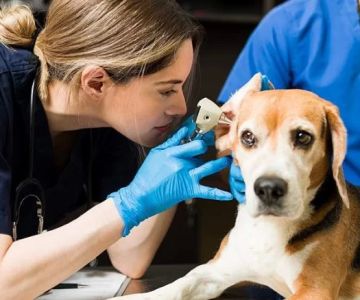- 1-Veterinary-Assistant-Role-Overview
- 2-Average-Salary-And-Earnings
- 3-Factors-Affecting-Veterinary-Assistant-Pay
- 4-Career-Growth-And-Salary-Progression
- 5-Real-Life-Salary-Stories
- 6-How-To-Maximize-Earnings-In-Veterinary-Assistant-Career
1. Veterinary Assistant Role Overview
Understanding how much veterinary assistants make begins with knowing what the role entails. Veterinary assistants support veterinarians and veterinary technicians by handling routine animal care, cleaning, feeding, and assisting during exams or procedures.
This position is often entry-level, serving as a stepping stone for those passionate about animal care and interested in advancing within the veterinary field.
1.1 The Importance of Veterinary Assistants
Veterinary assistants are vital in maintaining smooth clinic operations and ensuring animals receive attentive care, making their role both rewarding and essential.
2. Average Salary and Earnings
So, how much do veterinary assistants make on average? According to recent data, the typical salary ranges between $25,000 and $35,000 per year in the United States, depending on location and experience.
Hourly wages generally fall between $12 and $18, with variations influenced by the clinic size and regional economic factors.
2.1 Comparison by Region and Experience
Veterinary assistants in metropolitan areas or specialized clinics tend to earn higher wages than those in rural settings. Experience and certifications also contribute to increased pay.
3. Factors Affecting Veterinary Assistant Pay
Several factors influence veterinary assistant earnings. Geographic location plays a significant role, with urban centers offering more competitive salaries. The type of employer—whether a private clinic, animal hospital, or research facility—also impacts compensation.
Moreover, formal training or certifications can boost salary potential, as can years of experience and additional responsibilities.
3.1 Education and Certification Impact
Assistants who pursue certification programs or further education often see a positive effect on their pay scale.
4. Career Growth and Salary Progression
Veterinary assistants can grow into roles such as veterinary technicians or practice managers, typically accompanied by salary increases. Gaining experience and expanding skill sets open doors to higher-paying positions within veterinary medicine.
Long-term career planning can significantly improve earning potential.
4.1 Professional Development Opportunities
Continued education and specialization courses help veterinary assistants enhance their qualifications and marketability.
5. Real-Life Salary Stories
Jessica, a veterinary assistant in Denver, shares, “Starting out, my pay was modest, but after completing a certification course, I negotiated a raise that reflected my new skills.” Stories like hers highlight how investing in education can impact earnings.
Similarly, Mark found that moving to a larger hospital with more complex cases increased his income and professional satisfaction.
6. How to Maximize Earnings in Veterinary Assistant Career
To maximize how much veterinary assistants make, pursuing relevant certifications, gaining hands-on experience, and seeking employment in high-demand locations are key strategies.
Platforms like Fred Miller Lawyer also offer resources and guidance for veterinary professionals on contracts and employment rights, helping optimize career earnings.












